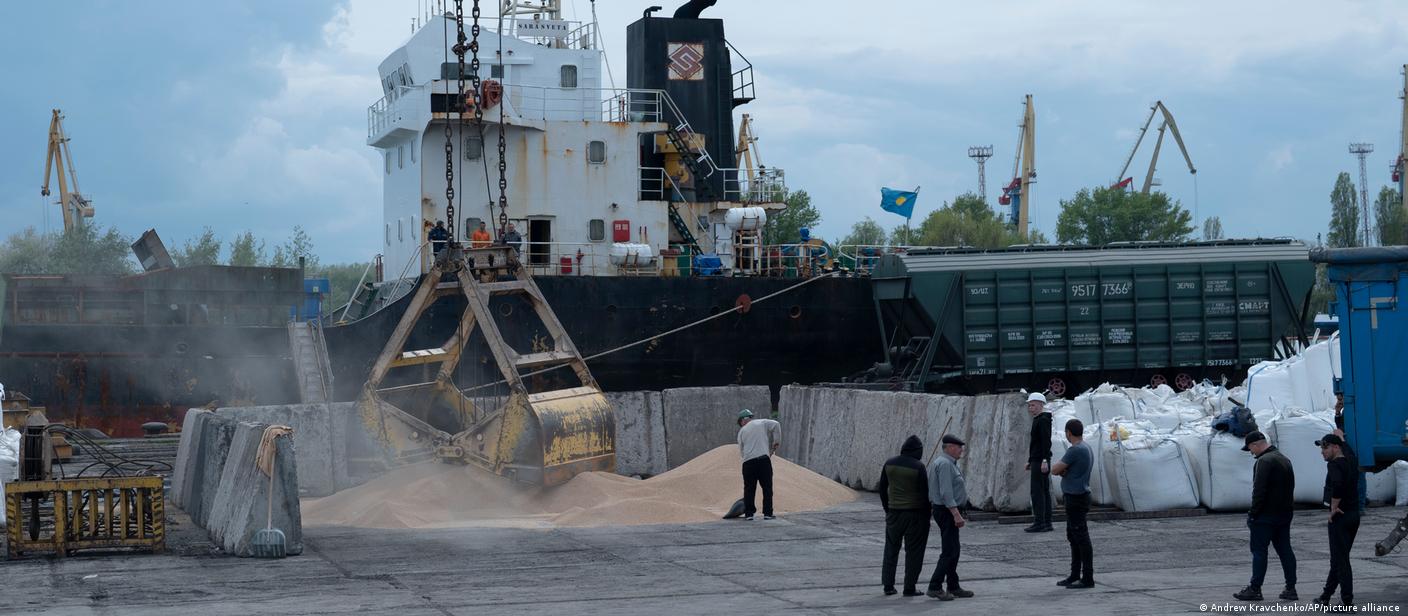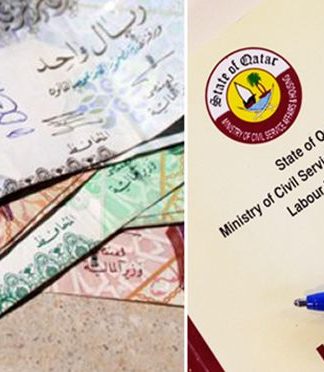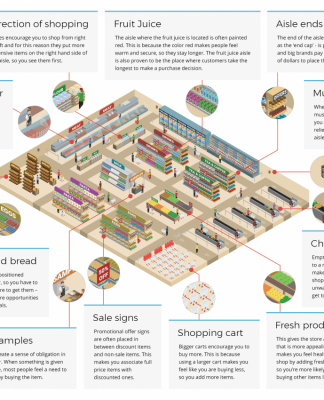Russia-Ukraine renew grain deal, but doubts persist
BUSINESSUKRAINE
Russia-Ukraine renew grain deal, but doubts persist
Arthur Sullivan
4 minutes ago4 minutes ago
The Black Sea Grain Initiative, a deal between Ukraine and Russia that allows for the continued export of grain and other food products has been extended for 60 days. But doubts persist over the long term.
https://p.dw.com/p/4RSVA
Five months after Russia invaded Ukraine, the two countries struck a deal to allow Ukraine — a leading producer of grains and other agricultural products — to keep exporting grain to international markets via the Black Sea.
Also known as the so-called Black Sea Grain Initiative, the agreement has been extended for two months, Russian foreign ministry spokeswoman Maria Zakharova confirmed on Wednesday.
She added, however, that Russia’s overall assessment of the situation regarding the deal had not changed. Russia had threatened to quit the arrangement, this Thursday unless a list of conditions were met.
The demands were:
– the readmission of the Russian agricultural Bank (Rosselkhozbank) to the international banking payment system, SWIFT.
– the resumption of supplies to Russia of agricultural machinery and spares
– the lifting of restrictions on insurance and access to ports for Russian ships and cargo
– the reinstatement of a pipeline pumping ammonia from the Russian city of Togliatti to the Ukrainian port of Odesa
– the unblocking of accounts and financial activities of Russian fertilizer companies
It was not clear whether any of the demands had been secured. Zakharova said work on them would continue. “We proceed from the obligation to implement the
parameters we declared,” she said.
Food security eperts have repeatedly said the continued flow of Ukrainian produce is critical to keep overall prices stable and help stave off hunger in many developing countries.
Yet the deal has been perennially dogged by uncertainty.
Russian protests
Russia, also a major food exporter, insists its own exports have been impacted by its exclusion from the SWIFT payments system. It also says restrictions on insurance and logistics for its ships have limited its export capacity.
However, there are no specific sanctions on Russian agricultural exports and the country had a bumper grain harvest in 2022/23, exporting a record 43 million tons. The harvest was massively boosted by the fact that Ukraine’s wheat exports collapsed by 37% in 2022 because of the war.
Russian Foreign Minister Sergei Lavrov attends a meeting with his counterparts from Turkey, Syria and Iran in MoscowRussian Foreign Minister Sergei Lavrov attends a meeting with his counterparts from Turkey, Syria and Iran in Moscow
Despite warnings and brinkmanship, Russian Foreign Minister Sergei Lavrov finally accepted a renewed dealImage: Russian Foreign Ministry via REUTERS
William Moseley, a professor of geography at Macalester College and a member of the UN High-Level Panel of Experts for Food Security and Nutrition, says it is ultimately not in Russia’s interests to let the deal lapse.
“Like any good negotiator, Russia wants to get the best deal possible,” he told DW. “No deal will hurt Russia’s ability to cultivate friends in the Middle East and Africa that depend on Black Sea grain.”
Food prices fall but global hunger a huge issue
Since the deal was introduced in July 2022, it has helped stabilize global food prices. They hit an all-time high in the aftermath of the Russian invasion but have since receded sharply.
“The Black Sea Grain Initiative has provided much-needed relief to global markets, and this has been reflected in an easing of prices,” a World Food Programme (WFP) spokesperson told DW. The FAO Food Price Index has fallen back to its end-of-2021 level.
However, the humanitarian organization says the war, the climate crisis and other economic shocks mean global food prices remain at a 10-year high.
“Food prices are up by at least 15% in 66 countries while inflation is running into triple digits in Venezuela, Lebanon, Zimbabwe, Syria and Argentina,” the spokesperson said.
An illustration of the Odesa Port, Ukraine, on January 11, 2023.An illustration of the Odesa Port, Ukraine, on January 11, 2023.
The grain deal allowed millions of tons of grain leave ports such as Odesa (pictured)Image: BePress/abaca/picture alliance
Moseley says the global food security situation is “not good,” pointing to WFP figures that say 345 million people face acute food insecurity at present.
Food system grapples with seismic challenges
The WFP says it is vital that the grain deal is renewed but that continuing uncertainty around it will create volatility on global food markets.
“The main thing here is trade sustainability for the world’s main staple foods,” a spokesperson said. “It’s about keeping global food supplies flowing and stabilizing the markets for all consumers, so we don’t see prices rising again and hitting the poorest people the hardest.”
William Moseley says a failure to extend the deal would be especially disruptive for grain-importing countries in the Middle East, North Africa and the Horn of Africa as the global food system is essentially still the same as it was this time last year.
“The global food system is like a massive ocean vessel that takes time to redirect,” he said. However, he believes it might not be as disruptive as it would have been last year.
Global food crisis: A world going hungry?
20:14
“The war in Ukraine, coupled with the COVID-19 related supply chain disruptions, has definitely started a conversation about the need to build a global food system that is not so dependent on trade and a few major global bread baskets,” he said.
He says many national governments around the world have placed much greater emphasis on domestic food production.
Another potential factor which would make a failure to renew the deal less damaging is alternative supply routes through Eastern Europe, several industry representatives say.
“It doesn’t matter whether it is renewed,” Dan Basse told Reuters at the GrainCom conference in Geneva this week. “With a lower crop this year, it can all go out west through Eastern Europe. The problem is that it will cost 15% to 20% more,” said the commodity expert from AgResource.
These more expensive routes could have could have a damaging impact on prices in the longer term if it put some producers off. There are also serious tensions between Ukraine and several Eastern European countries over the transit of grain through their countries and how it is impacting domestic producers.
Most delegates polled at the conference agreed that the much lower harvest this year meant the pressure to export via large ships through the Black Sea was not as great as it had been. Some warned that higher export prices could lead some farmers to stop producing.
Edited by: Tim Rooks






























